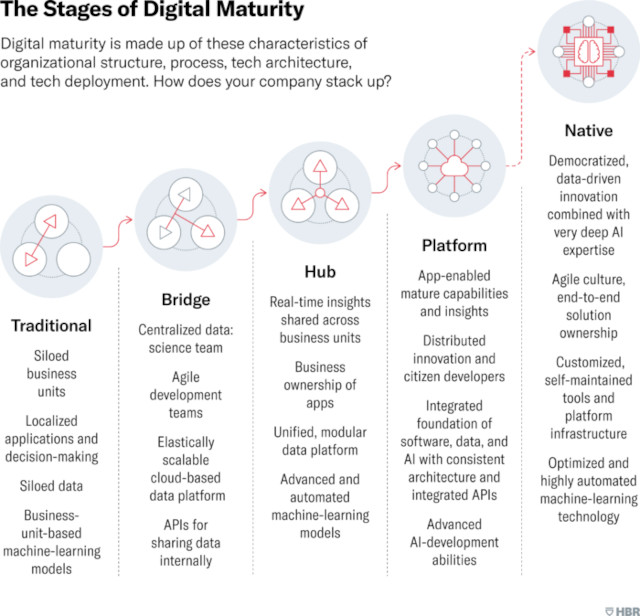[From Pixabay]
Good morning,
In her book Smart Growth, Whitney Johnson tells this fascinating story about Ed Catmull who built an amazing culture at Pixar.
She writes: “In the Pixar ecosystem under his leadership, employees felt connected to each other, unified in a common cause. They knew that their work mattered; but, even more, they mattered as human beings. That belief was forged during what Catmull describes as the ‘defining moment for the character of Pixar.’ Well along in the process of making Toy Story II, someone made a critical mistake, something as simple as pushing the wrong button. Backup procedures were inadequate, or perhaps weren’t followed. It wasn’t a technology failure; it was operator error. Perhaps several mistakes were made, and 90 percent of Toy Story II was lost. Thousands of hours of work were gone, except for what could be retrieved from the personal computer of an employee who’d been working from home on maternity leave.
“Stunningly, there was no witch hunt for the responsible parties and culpability was never determined. ‘Accountability is something that we need to have, but it shouldn’t be used as a weapon against people,’ he says. ‘And it often is.’ Catmull’s message to his employees was that in Pixar’s high character ecosystem, people were safe in making mistakes, and setbacks were expected. The work mattered, but his people mattered more.”
We wish you a happy Ambedkar Jayanti, Baisakhi, Mahavir Jayanti, and Tamil New Year's Day!
The rise and rise of Canva
Pretty much everyone we know uses Canva as a design tool. And that includes us. So much so that it is now a $40 billion juggernaut. But this isn’t how it used to be. When the company’s founders set out a decade ago to raise funds from potential investors in Silicon Valley, a 100 rejection slips greeted them, writes Mark Wilson in Fast Company. But they stayed on. Because the founders knew what they wanted to create.
“Its easy-to-use, templated design platform allows people to create business cards, birthday invitations, social media ads, sales presentations, coffee mugs, and yearbooks. It works equally well on a phone, tablet, or laptop. Canva is a word processor for our modern visual culture, adjusting anything you see—text, an image, a background, an animation—with a simple tap.” And that is what all of us love.
More importantly, the founders know what Canva is not about.
“It’s not out to replace designers and their specialised tools, but to work alongside them.
“Truthfully, Canva can’t replace the high-end design tools of today. For being a platform to design ‘anything,’ it actually has clear guardrails on what it can and can’t do. Namely, you cannot free draw or illustrate within Canva. Drawing ‘was pretty much off the table,’ says Cameron Adams, Canva’s chief product officer and third cofounder. ‘Not in a forbidden kind of way. But that fine motor skill of drawing that you associate with great artists is probably the biggest thing that puts people off from even thinking about designing something.’ And Canva, by design, doesn’t intimidate.”
Dig deeper
Being digital
In Harvard Business Review, Marco Iansiti and Satya Nadella present a useful framework to think about which stage your organisation is in the digital transformation journey. On the one end of the spectrum are traditional companies with siloed business units that don’t talk to each other, and on the other end, there are digital natives.

Iansiti and Nadella write, “The most successful companies among the 150 in our study have deployed an entirely different type of operating architecture, centred on integrated data assets and software libraries and designed to deploy AI at scale across a huge, distributed spectrum of applications. Its hallmarks are a core of experts; broadly accessible, easy-to-use tools; and investment in training and capability-building among large groups of businesspeople. These companies are approaching the capacity of digital natives such as Airbnb and Uber, which were purpose-built to scale companywide analytics and software-based innovation. Airbnb and Uber are certainly not perfect, but they come close to the native ideal.
“At Microsoft, we still have a lot to learn, but in some parts of the organisation we are starting to approach the native model. As is common in any enterprise, the progress has not been uniform. Different groups have achieved different levels of capability, but the results overall are encouraging, as we see increasingly innovative solutions to internal and customer-facing problems. Most critically, our companywide approach to understanding, protecting, and working with data has progressed by light years.”
Dig deeper
Design challenges

(Via WhatsApp)
Found anything interesting and noteworthy? Send it to us and we will share it through this newsletter.
And if you missed previous editions of this newsletter, they’re all archived here.
Warm regards,
Team Founding Fuel
(Note: Founding Fuel may earn commissions for purchases made through the Amazon affiliate links in this article.)

